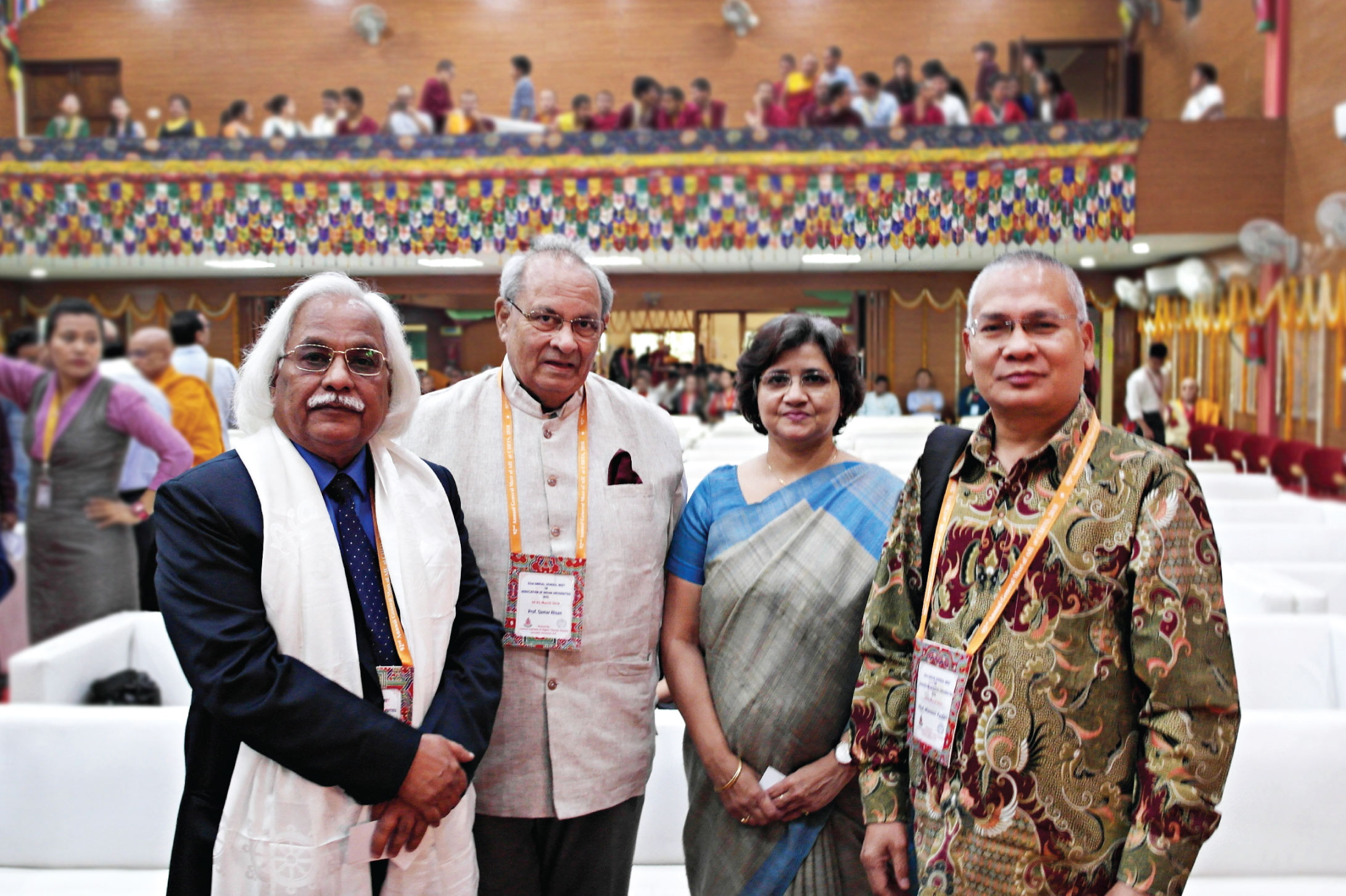By YBhg Prof Dato’ Dr Mansor Fadzil
President/Vice-Chancellor, OUM

From 19 to 21 March 2018, I was in Varanasi, a holy city in northern India, to attend the 92nd Association of Indian Universities (AIU) Annual General Meet.
I was there to represent OUM, which is the first Malaysian university to become a member of the AIU. The event, hosted by the Central Institute for Higher Tibetan Studies, was held to discuss ethics and human values in higher education in the age of technological disruption.
Although I have previously visited India on numerous occasions in my official capacity as OUM’s President/Vice-Chancellor, this particular work trip had been particularly memorable, for it afforded me the rare opportunity to come face to face with a truly global icon: Tenzin Gyatso, otherwise known as His Holiness, the 14th Dalai Lama.
The Dalai Lama graced the meeting as its guest of honour; his presence and opening remarks were the highlight of an opening ceremony that included traditional Tibetan performances and renditions of the religious mantra, Mangalacharan.
[T]he simplest things are the hardest to observe.
On the theme of the meeting, the Dalai Lama commented that the 21st century, although filled with innovations and discoveries, is increasingly marred by violence.
He argues that using force to solve problems is no longer an acceptable solution. This century should instead be an era of dialogue and diplomacy where we seek equitable solutions for any conflict. According to him, this is where education must play its role in producing more responsible and ethical citizens.
The Dalai Lama took the opportunity to offer his advice in other broader terms as well.
He says that happiness comes from simple and basic things, not material success or worldly attainments. Living a simple existence is something he often advocates, but the Dalai Lama does not eschew all modern comforts. He is active on Facebook and Twitter, and believes that science and technology are equally important for a fulfilling life.
The educational systems of the future must focus on strengthening inner human values. This is something I hope OUM academics and tutors can take to heart.
In short: simplicity and balance are enough for a happy existence.
These words do not convey a novel idea but I find that sometimes the simplest things are the hardest to observe. I believe that one of the ways we can adopt the Dalai Lama’s teachings is to try our best to heed ethical values in everything that we do.
We may all hold different positions at work or at home but our actions must always be driven by the right principles. We should in other words be morally responsible and mindful of the implications of our actions on others.
OUM tutors, for example, play an indispensable role as educators. It is crucial that they take their role seriously by giving due respect to the University and its learners.
Tutors should strive to empathise with the learners under their care. Be patient and compassionate in conduct, be it in the physical classroom or in online interactions. And ensure that the knowledge imparted and the skills cultivated truly benefit the learners.
In an editorial piece penned by the Dalai Lama for the Los Angeles Times, he asserted that, beyond our material-oriented educational systems, we should place greater emphasis on social, emotional and ethical learning. The educational systems of the future must focus on strengthening inner human values. This is something I hope OUM academics and tutors can take to heart.
While the OUM management will continue to ensure the delivery of quality education, the time has also come to commit to a more holistic and comprehensive approach in our teaching and learning.
As I mentioned before, none of this introduces a novel or surprising idea, but advocating a shared commitment to good values, whether as educators or in our other capacities, is a point worth reiterating.

Five Minutes with YBhg Prof Dato' Dr Mansor Fadzil, President / Vice-Chancellor, OUM
Introducing my_philosophy, a new inspired column profiling OUM academics and the personal educational philosophy that drives each of them.